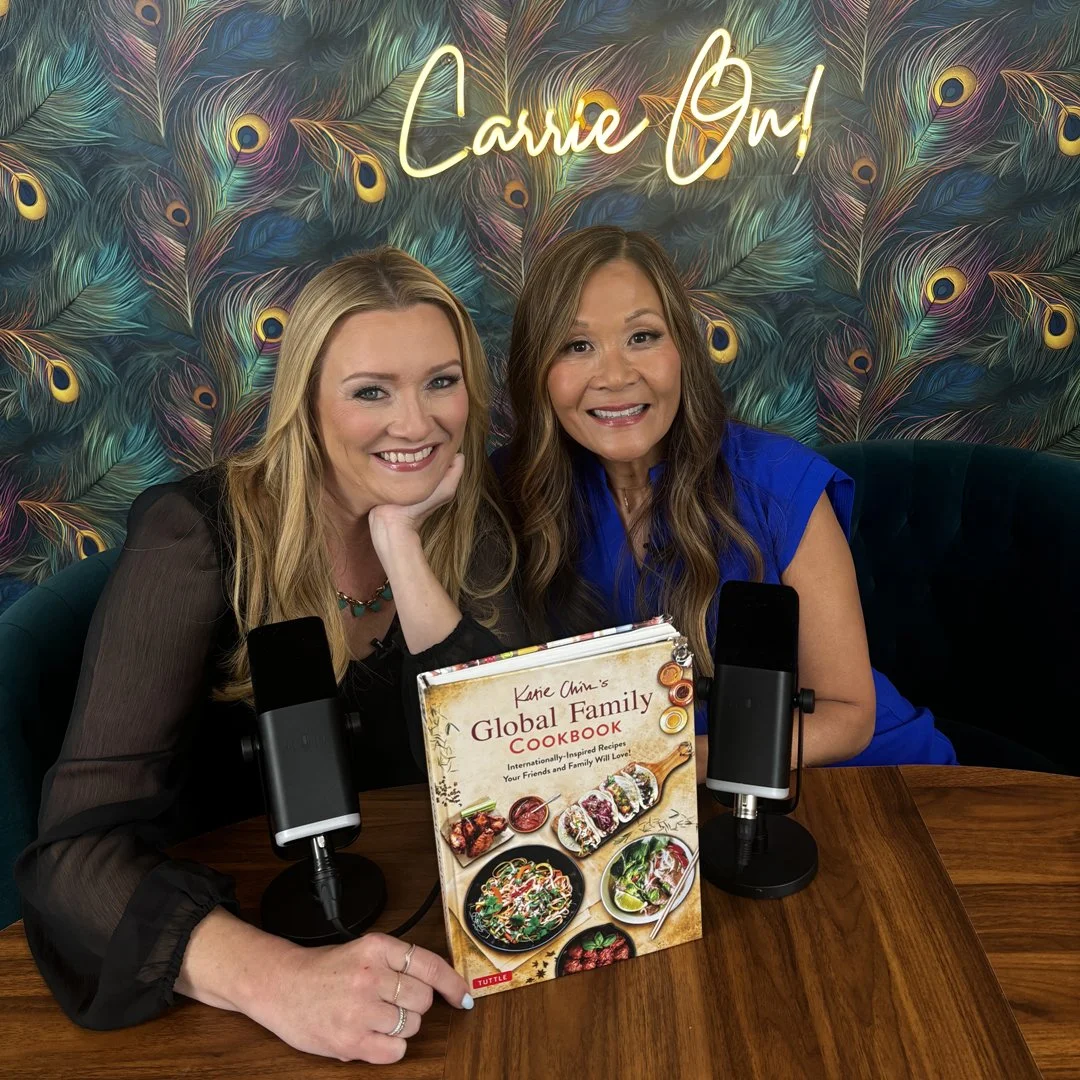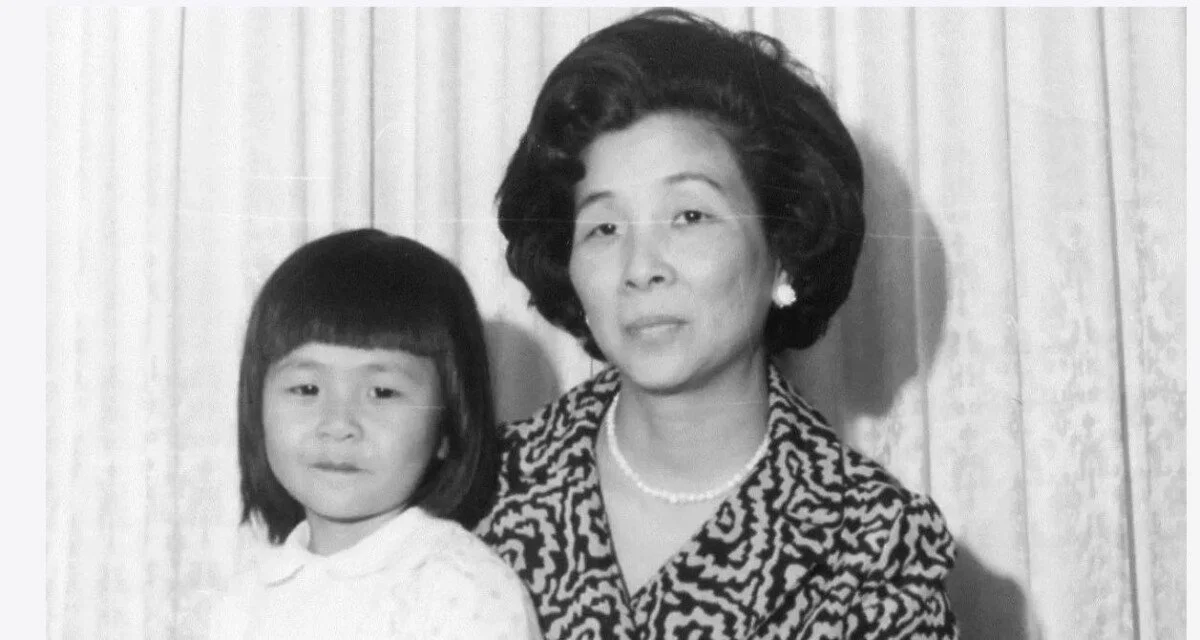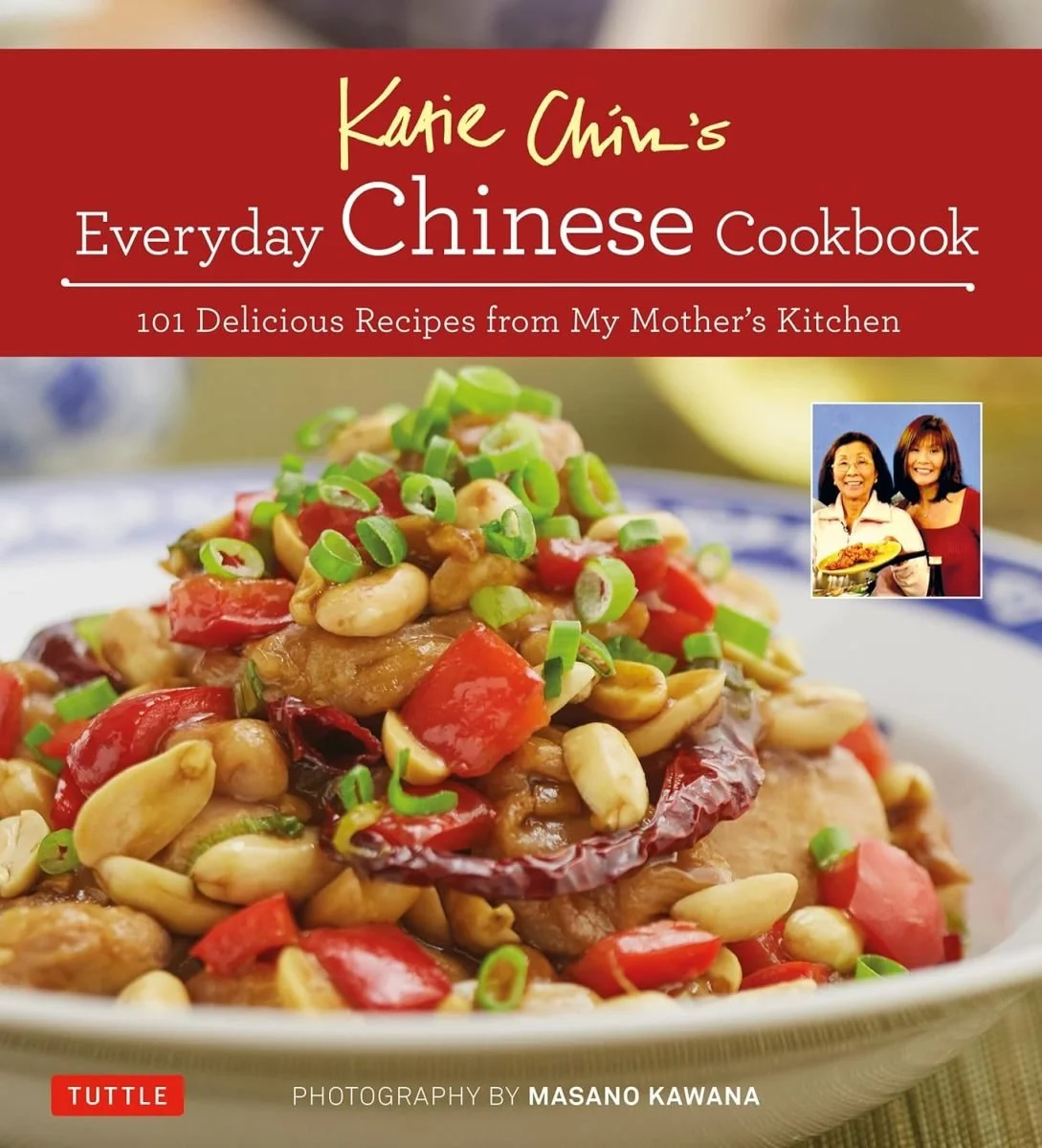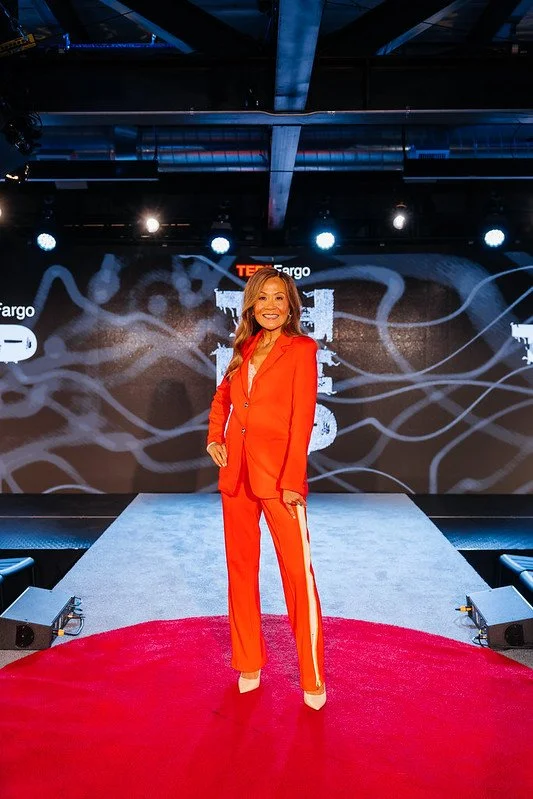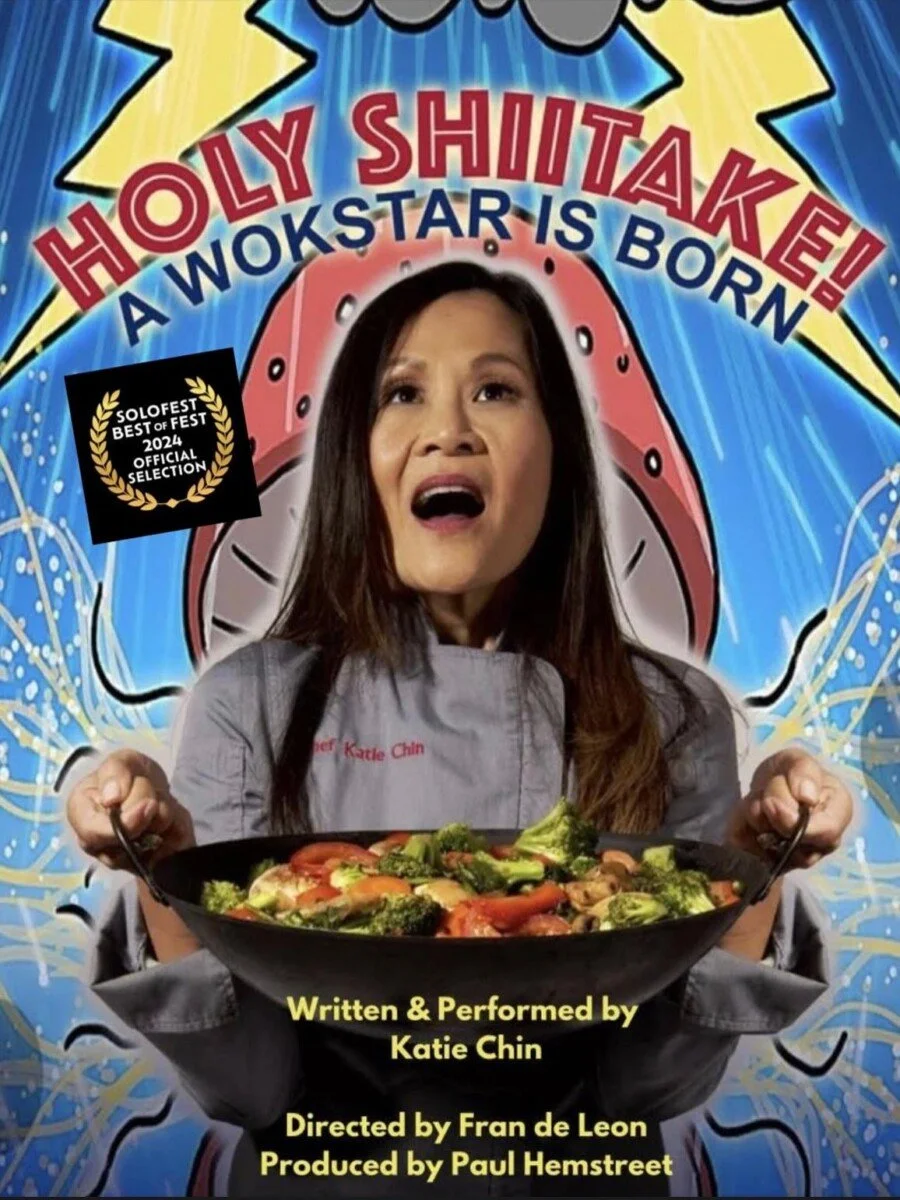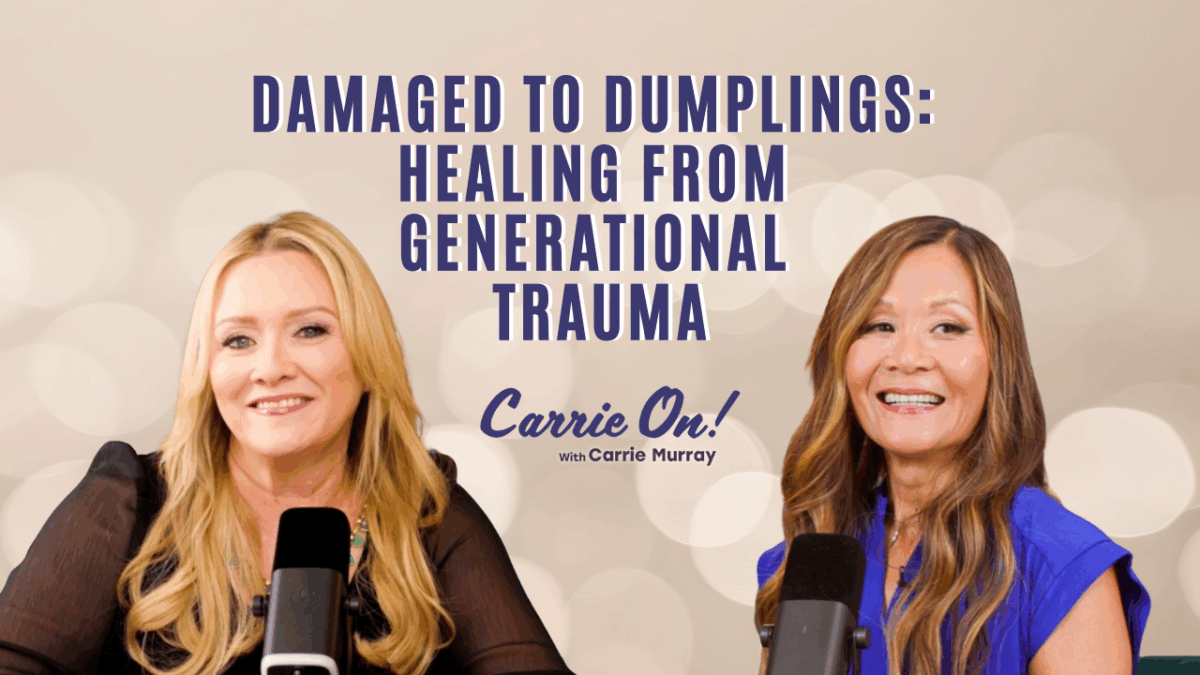How Food Helped Heal Generational Trauma: A Conversation with Chef Katie Chin
Can food really heal our deepest wounds? Celebrity chef Katie Chin believes it can—and her story will make you believe it too.
When Katie sat down with me on Carrie On!, she shared a life story that reads like a Hollywood script: her mother, Leeann Chin, was a seamstress in Minnesota who built a restaurant empire—thanks in part to an unexpected investor named Sean Connery. (Yes, that Sean Connery.)
But what stood out most in our conversation wasn’t the glamour of that story. It was the quiet, complicated thread that wove through it: how shame, silence, and cultural expectations shape us—and how cooking became Katie’s path back to herself.
From Lunchbox Shame to Michelin-Worthy Love
Katie grew up as one of six children in Minneapolis, the daughter of Chinese immigrants who wanted nothing more than for their kids to live the American dream. But in the 1960s, that dream was… complicated.
Her parents encouraged her to assimilate—to fit in, blend, adapt—while at home, she was expected to be dutiful and respectful of her heritage. She describes it as “fish out of water” living. Her lunchbox held barbecued pork buns while the other kids ate bologna sandwiches.
Inside the home, food meant love. Outside, it meant shame.
That tension followed her into adulthood—until she finally found the courage to face it head-on.
A Mother’s Love, Measured in Meals
When Katie left her job as a senior VP at Fox and her unhappy marriage all in the same month, she did something radical: she invited her mother back into her kitchen.
At first, it was about recipes. Her mom would fly from Minnesota to Los Angeles to teach her how to cook again—stirring lemon chicken while quietly stirring up memories long buried.
But what emerged from those cooking sessions was something far deeper than food. They became a shared language of healing.
In the stillness of chopping, mixing, and tasting, her mother began to talk—about her life in China, her struggles, and even the daughter she had lost years earlier.
Through cooking, they found a connection. Through food, they found forgiveness.
Breaking the Silence
For decades, Katie’s family never spoke about her sister’s suicide. In many Chinese-American households, grief is private, pain is hidden, and “you don’t dwell on the past.”
But silence is its own kind of poison.
Katie decided to break the pattern. She wrote about her sister’s death and her own journey through therapy in an op-ed for USA Today—and was flooded with messages from readers thanking her for giving them permission to do the same.
“I realized that by telling the truth,” she told me, “I was helping others heal, too.”
When Dumplings Release Your Demons
Katie’s latest TEDx Talk, “Dumplings Released My Demons,” explores the science behind generational trauma—the way emotional wounds are literally passed down through our DNA—and how rituals like cooking can help rewire that pain.
Cooking, she says, is meditative. It opens space for conversation. It invites presence. And when shared with others, it can become a gateway to release the stories that have held us captive.
The Art of Reinvention
Katie’s story is, at its core, about reinvention.
She’s gone from entertainment executive to cookbook author, from performer to culinary ambassador. She’s written five cookbooks, created a one-woman show Holy Shiitake: A Wok Star Is Born, and built a thriving catering business (WokStar Catering)—all while raising twins and using her platform to talk about healing and heritage.
What I love most about her story is this: she didn’t wait for permission. She leapt, trusting the net would appear.
A Recipe for Healing
If you’re carrying your own generational story—of silence, shame, or survival—Katie’s journey offers a simple starting point:
Write it down. Put words to what you feel.
Cook something meaningful. Recreate a family recipe and remember who taught it to you.
Talk about it. Share your story with someone safe. Break the silence that keeps you small.
Healing doesn’t have to look like therapy under fluorescent lights. Sometimes it looks like standing in your kitchen, hands covered in flour, finally giving yourself permission to be both your mother’s daughter and your own woman.
🎥 Watch our full conversation on YouTube.
🎧Listen to the episode on Apple Podcasts or Spotify.
If this episode moved you, share it with a friend who loves food, family stories, or fierce women redefining what healing looks like.
Until next time, keep your head above the chaos and carry on.
xo,
Carrie

